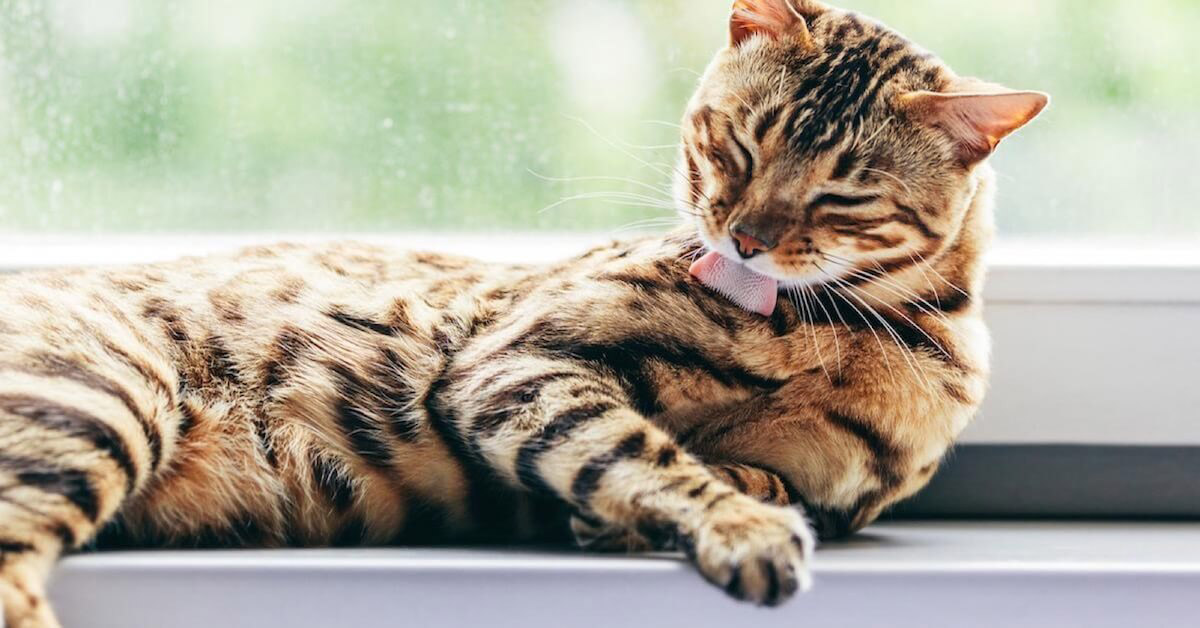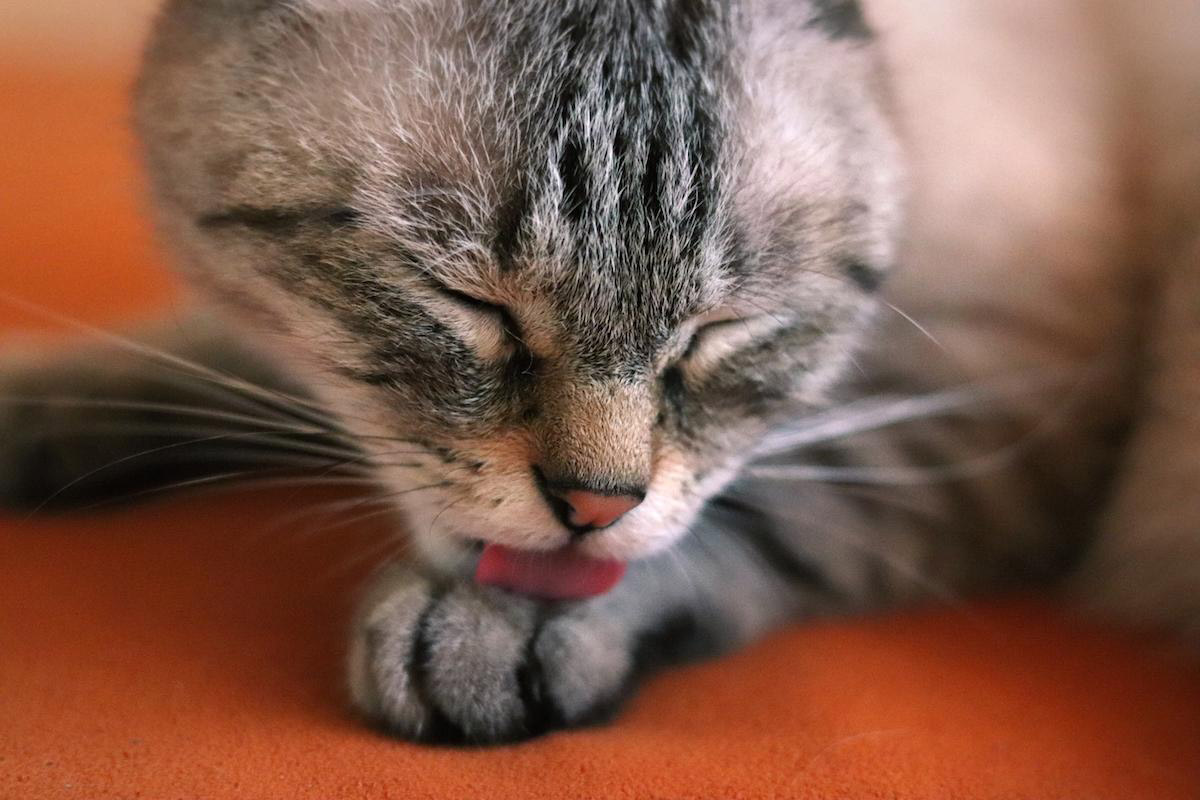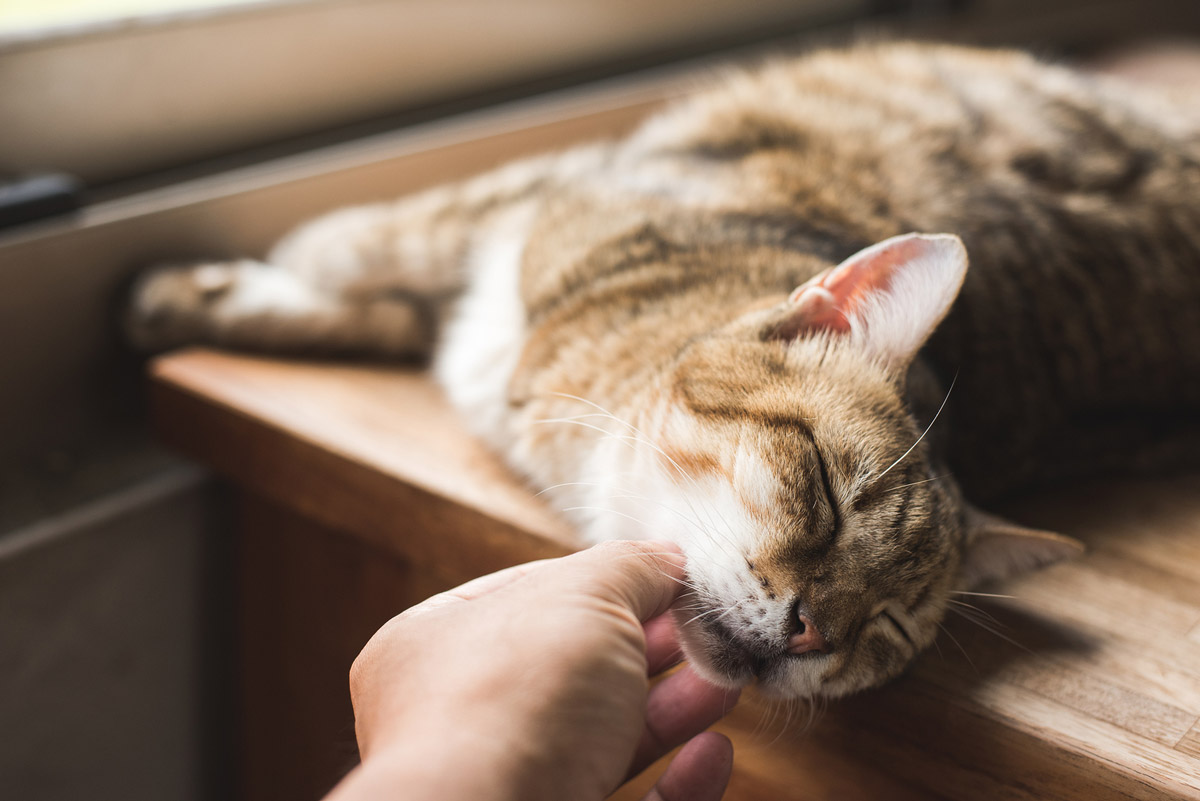Overgrooming in Felines: Signs, Reasons & Ways to Stop it

If you are the fur-parent of a cat, you’ll probably know that some felines can groom themselves for what seems like 30 to 50% of the day. However, though grooming is extremely normal, there are cases where cats tend to overgroom themselves.
This can cause your cat’s coat to lose its shine and lustre. The hair on their body will start to break, and bald patches may appear. When left untreated, your cat can damage the skin itself. That said, when is your cat overgrooming? What are the signs you should look out for? And what are the causes of this sudden change in routine?
Keep reading on and we’ll walk you through the answers to these pressing questions!
Overgrooming
Known as a behavioural condition in felines, overgrooming refers to the constant licking of the coat to an extent where the hair breaks or tears out. It can get to the point where your cat may even start to bite their skin.
The reason why cats enjoy licking themselves so much is because it releases endorphins — natural “feel good” neurotransmitters created by the brain. It makes self-grooming soothing and releases all the tensions and worries in their world.
However, as relaxing as grooming is for them, it can also mean that your furkid is feeling stressed. In other words, overgrooming is a sign for you to look into what might be making your cat unhappy or uncomfortable with one of the trusted vets in Singapore.
Signs of overgrooming

When there’s a change in your cat’s grooming routine, you will notice them doing the following:
- Constantly licking and scratching of skin and fur
- Plucking at hair with its teeth
- The fur is patchy or breaks easily
- Rubbing its body and mouth against furniture obsessively
- Constantly meowing
- Easily irritable.
Causes of overgrooming
Medical reasons
In most cases, cats scratch and lick at their skin when they are feeling an itch. This itch can be caused by an allergic reaction to either a new kind of food, fleas and ticks, skin mites, ringworms, or even a strange plant in the garden.
Skin conditions like eosinophilic granuloma can also cause irritation and discomfort on a cat’s skin. A simple dermatological test can detect whether your feline has an allergic reaction. Meanwhile, simple anti-biotics and lotions can help heal mild skin irritations.
Behavioural overgrooming
More commonly known as psychogenic alopecia, behavioural grooming is caused by a variety of stress factors. This includes an environment that may be too cluttered or chaotic, a new pet being introduced into the household, or new changes to the surroundings that may be viewed as a potential threat.
Ways to stop overgrooming

Use supplements/medication
At times, medication can really come in handy. Felines who get anxious easily often may benefit from using anti-anxiety supplements and/or medications if their owners are unable to keep a watchful eye on them for long hours.
These medications are available in the form of tablets, like Zylkene, but there are also alternatives like Pet Remedy and Feliway are ‘organic’ or ‘natural’ medications which are in the form of sprays and diffusers.
Do note that while medication is a solution, make sure you obtain a vet’s prescription before purchasing them. In the meantime, you should also look consult the vet on the best course of action and treatment to take.
Keep a routine
To make a cat feel at ease, it’s really all about creating a predictable schedule and a comfortable environment.
This includes simple actions such as feeding them at the same time daily or changing the littler box regularly and at least once a day. However, do keep in mind that incorporating such changes should happen gradually so as to reduce the amount of stress introduced for your furkid.
Be patient and show them affection
Expanding on the previous point, what you as a fur-parent can do is to keep calm and be patient. Try not to interfere too often or punish your cat if it is excessively grooming. Doing so will only add to their stress and worsen the issue!
Instead, give them some time to return back to normal and show that you care by making them as mentally, emotionally, and physically contented as possible. Play with your furkid regularly, groom them often, and keep them away from possibly distressing situations.
It’s important that you spot the signs of overgrooming immediately, so that you can have the condition attended to at once. While the rate of how fast your cat will return to its normal grooming routine is not within your control, the amount of affection and patience given to your kitty is. So, do what you can to help ease their stress and discomfort — every little action matters!








